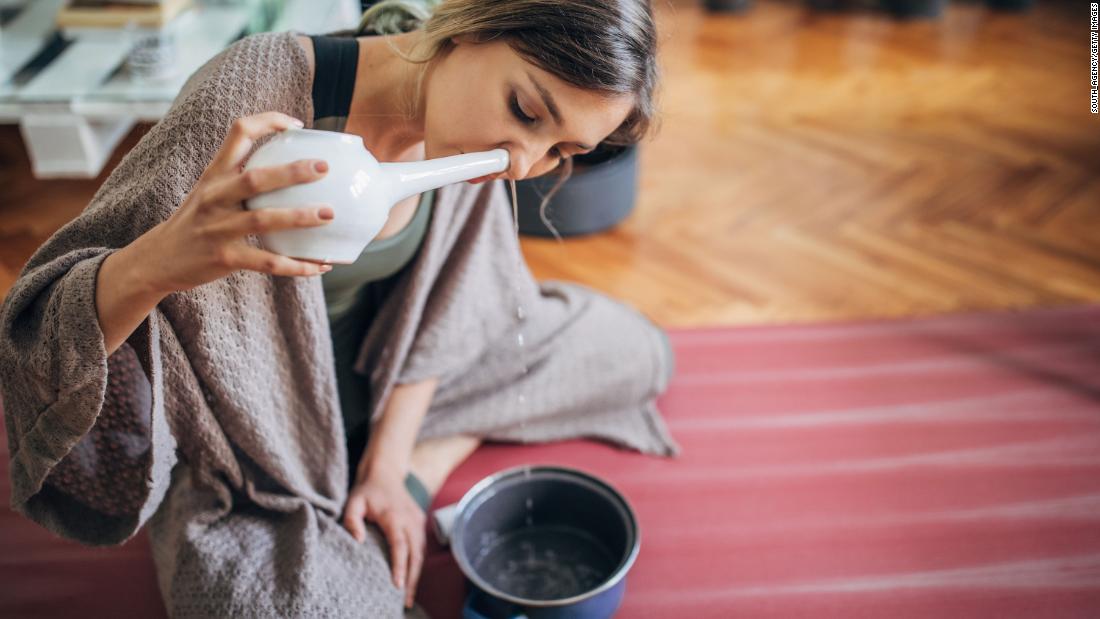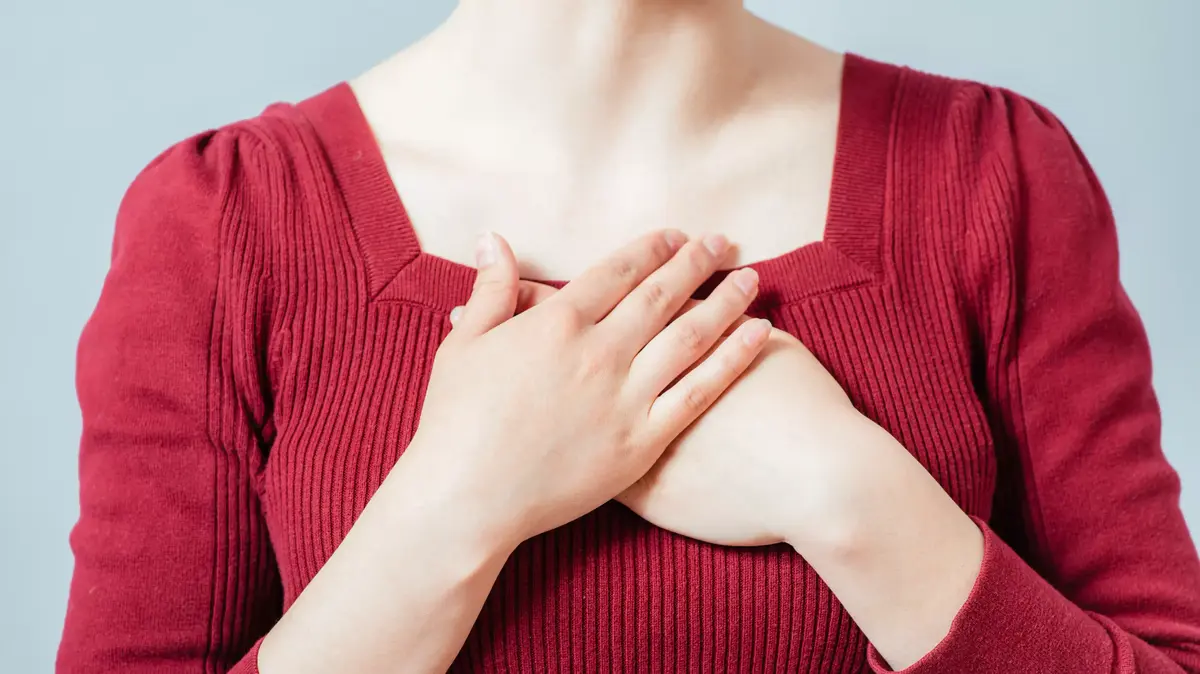More than 567,000 deaths from covid-19 are projected in the US 0:27
(CNN) -
We teach kids not to.
It is unsanitary.
It's just gross to watch.
However, let's face it.
Most of us pick our noses, 91% according to the only study (small and old) that seems to have been done on the subject, which perhaps reveals how little even scientists want to think about the subject.
However, if you look around the world, it's not exactly rare to see someone with a finger to their nose, discreetly or not so much, like Queen Elizabeth.
Jokes aside, picking your nose is serious.
Not only do people spread their own bacteria and viruses in everything they touch after picking their noses, they also "transfer germs from the fingertips to the nose, which is the exact opposite of what you want," said the infectious disease specialist Dr. Paul Pottinger, professor at the University of Washington School of Medicine in Seattle.
That means you can spread the coronavirus to other people by picking your nose, and you're also more likely to get the virus, along with others like influenza or rhinovirus (the common cold), directly into your body.
How the coronavirus enters your body
The nose is one of the three main ways that viruses can enter the body.
The other two are the mouth and the eyes.
The nose has a number of defense systems to keep pathogens away, including the hair in the front of the nostrils to block larger particles and the mucous membrane.
advertising
That moist lining of the nose 'has microscopically small glands that can secrete mucus into the airways in response to foreign invaders.
That includes big things like pollen, dirt and dust, and also microscopic things, which would include bacteria and viruses, ”said Pottinger.
A little muscleiness is a good and healthy thing to do, as it keeps most invaders at bay.
But when it dries, along with whatever it has caught, it turns into what most of us call snot (scientists call them scabs).
When you feel one on your nose, it's easy to want to remove it without thinking.
What many people don't realize is how delicate the skin can be inside the nose.
Picking your nose can create tiny cuts in the delicate epithelial linings of the nasal cavity, said molecular virologist Cedric Buckley, a former associate professor of biology at Jackson State University in Mississippi, who now develops the STEM curriculum.
"Once that barrier is broken, you go straight into a capillary bed, which becomes the conduit for infection by viral particles," explained Buckley, who is also part of the City of Jackson's coronavirus task force.
This increases the chances that germs on your hands will be transmitted directly into the bloodstream.
Breaking the habit of picking your nose
Picking your nose is something that should be avoided, more than ever during a pandemic.
But habits can be difficult to break, especially those that are done without thinking.
Nose picking, as well as nail biting, skin picking, lip biting and hair pulling, is considered by mental health professionals to be "repetitive, body-centered behavior."
Those are "actions that are directed at the body itself and that often focus on grooming or removing parts of the body," according to Dr. Elias Aboujaoude, clinical professor of psychiatry at Stanford University in California and director of the Disorder Clinic. Obsessive Compulsive there.
These behavioral habits can be a clinical disorder if they result in significant damage or impairment to a person's personal or professional life, Aboujaoude said by email.
For many of us, however, they are just bad habits, not disorders.
Masks, an ally to avoid picking your nose
Habit reversal therapy, a form of cognitive-behavioral therapy, is a tool used by psychiatrists to help people with repetitive, body-centered behaviors.
This treatment "increases awareness of the behavior and its consequences, and trains the individual to replace picking the nose with a 'competitive response,'" Aboutjaoude said.
That means doing something with your hands that is less harmful and more socially accepted, like making a fist or squeezing a stress ball.
LEE:
Americans are converting to the culture of masks, according to a survey
This is where the use of masks can be especially helpful.
In addition to the effectiveness of masks in reducing the transmission of airborne particles that may contain the coronavirus, they can also help reduce nose picking times by physically blocking the habitual or unconscious action of bringing the finger to the nose.
"If you're eager to stop picking your noses, boy, what a great opportunity to seize this moment in human history when everyone is supposed to cover their faces," said Pottinger.
Good practices for nasal health
If you find that picking your nose is not a habit but a reaction to your continually feeling discomfort or stuffy nose, have your nose checked by your doctor or at a local clinic.
Your problem could have less to do with those nasal scabs and more to do with other causes that need to be addressed.
"You could have a deviated septum, you could have nasal inflammation, you could be prone to seasonal or chronic allergies, in which your nasal membranes are constantly swollen," Buckley said.
The best way to get rid of snot is to blow your nose with a tissue and then wash your hands instead of removing the scabs.
Blowing your nose into a tissue and then washing your hands is a hygienic way to get rid of scabs.
Rhinocorn (known as
neti pots
) or saline sprays are another option.
Remember, mucus is just a piece of dry musk.
If you rehydrate the mucus, you should be able to blow it out or make it come out on its own, ”Pottinger said.
Using a well-maintained neti pot with sterile water is another good option for the safe removal of scabs from the nose.
However, he said that everyone should have their own jar.
It should not be shared even with intimate partners.
It must be kept clean and the tip must be cleaned regularly so that germs are not passed into the nose from one use to another.
And if you use a
neti pot
, Pottinger said, be sure to use sterile water.
Humidifiers to keep indoor air hydrated can also help reduce scab formation.
Prevent covid and loss of smell
This is how covid-19 alters the sense of smell 2:20
Taking care of your nasal health, which definitely includes not picking your nose, will reduce the risk of contracting coronavirus and transmitting it.
Pottinger, who has worked with patients who have contracted the virus, said that a sometimes long-lasting side effect of the viral infection is anosmia, or the loss of the sense of smell.
This also affects the ability to taste.
Patients who experience this condition “are very, very depressed, discouraged and discouraged because they can no longer taste their food.
Now I am hopeful that some of those people regain their sense of smell, some do.
For some it is a long recovery, "he said by email.
"If you like to eat and you would like to taste the good things, make sure you do not contract covid-19," he added.
Starre Vartan, a former geologist, is a science journalist and dog runner who lives on an island in Puget Sound, near Seattle, and still collects rocks wherever she goes.






